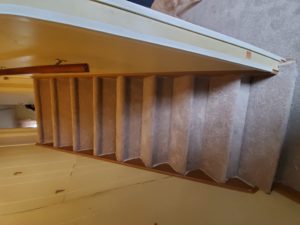What Is the Quality of Vinyl Flooring?


Vinyl flooring is a multi-layered material made from polyvinyl chloride, quartz sand, and plasticizers. Flooring is durable and resistant to abrasion, heat, and sharp objects.
It is perfect for family homes with active children and pets. It is also a good choice for people who live in hot, humid climates.
Durability
Vinyl flooring is one of the most durable types of flooring available. It’s made from multiple layers, including protective layers, a backing, and a top design layer.
These layers give vinyl flooring durability from scratches, dents, gauges, scuffing, mildew, and other damage.
They also resist moisture, which is a common issue with many floor surfaces. This makes vinyl tile and sheets a great choice in bathrooms, kitchens, or laundry rooms where water can be a major concern.
The quality of the vinyl you choose will impact its overall durability. High-quality floors are manufactured with a special surface treatment that helps to desist scratches and gauges from forming.
In addition, look for vinyl flooring that has a wear layer that is at least 0.2mm thick. This thickness is critical for a floor that can withstand moderate foot traffic.
Easy to maintain
Vinyl flooring is one of the easiest types of floors to maintain. Most vinyl products come with a special surface treatment that helps protect them against scratches and stains.
Depending on the type, most vinyl flooring is easy to clean with standard floor care methods such as vacuuming, sweeping, and mopping. Some are able to resist moisture and stand up well to standing water, but you should still wipe up any spills immediately.
In addition to keeping the floor clean, you should also keep it dry to prevent the buildup of mold and mildew. You should also avoid cleaning your floors with harsh chemicals and abrasive cleaners.
In addition, to keep your vinyl floors looking beautiful, you should treat them with a good floor wax every year or two. This will help seal the finish and prevent fading, which can happen with constant exposure to sunlight. This type of maintenance will help your vinyl flooring last longer than other options.
Asbestos-free
Vinyl flooring is no longer produced with asbestos, but there are still a number of products that contain it. These include vinyl wallpaper, floor tiles, and sheet flooring.
Asbestos was used in these materials to make them more durable. It was mixed with binders, fillers, pigments, resins, and chemicals to help the tiles resist wear.
However, the tiles became friable after a while, which means that asbestos fibers are released into the air when they are broken, chipped, or crumbled.
This is why it is important to stay away from these tiles. The best way to remove them is to call in professional help. This is a hazardous job that requires special safety clothing and breathing respirators.
Variety
There is a large variety of vinyl flooring options available to home builders and homeowners. This flexibility allows homeowners to choose a floor that best suits their needs and tastes.
There are three main types of vinyl flooring: sheet, luxury vinyl, and vinyl composite tile (VCT). Each type has advantages and disadvantages that may affect your choice of product.
Sheet vinyl is a popular flooring option that comes in wide rolls. This means there are fewer seams than other vinyl products, and it is also better at repelling water.
The core of the vinyl is made from durable PVC that contains plasticizers to give it strength. This layer is followed by a design layer that can mimic wood, stone, ceramic, and many other materials. Then, there is a top wear layer that protects the sublayers from damage.
